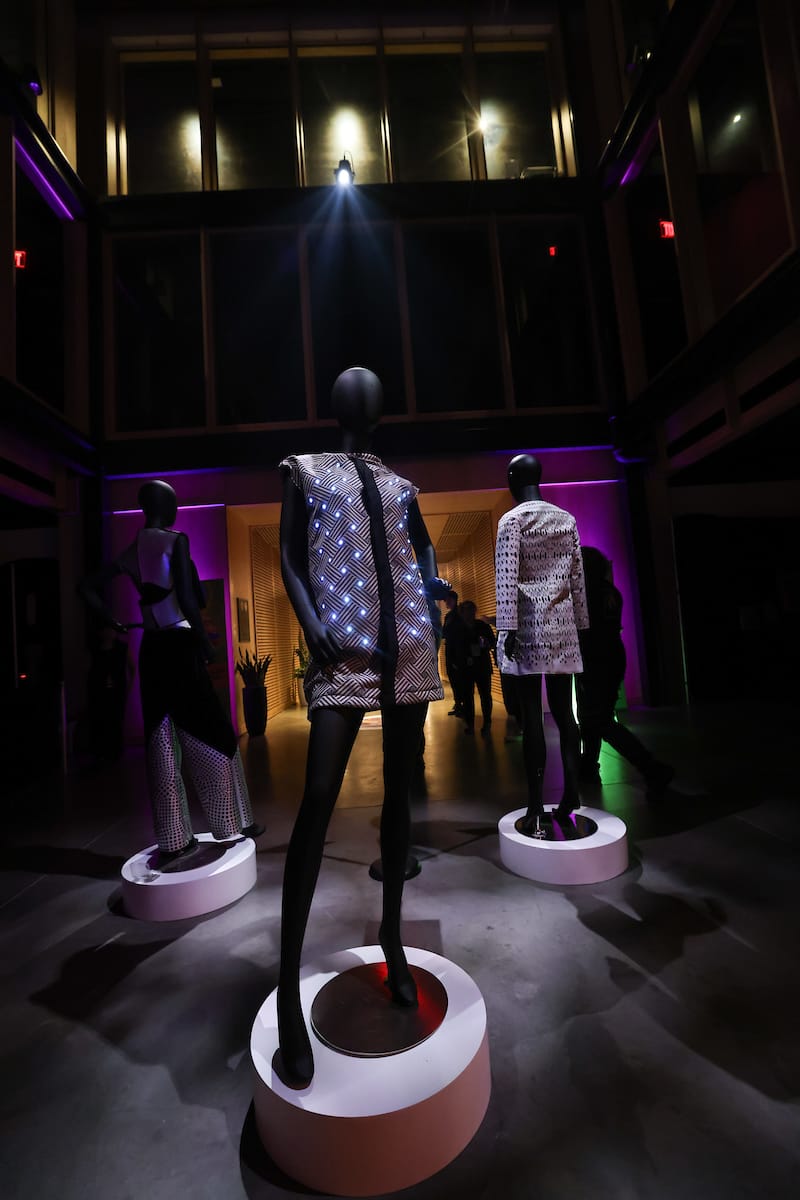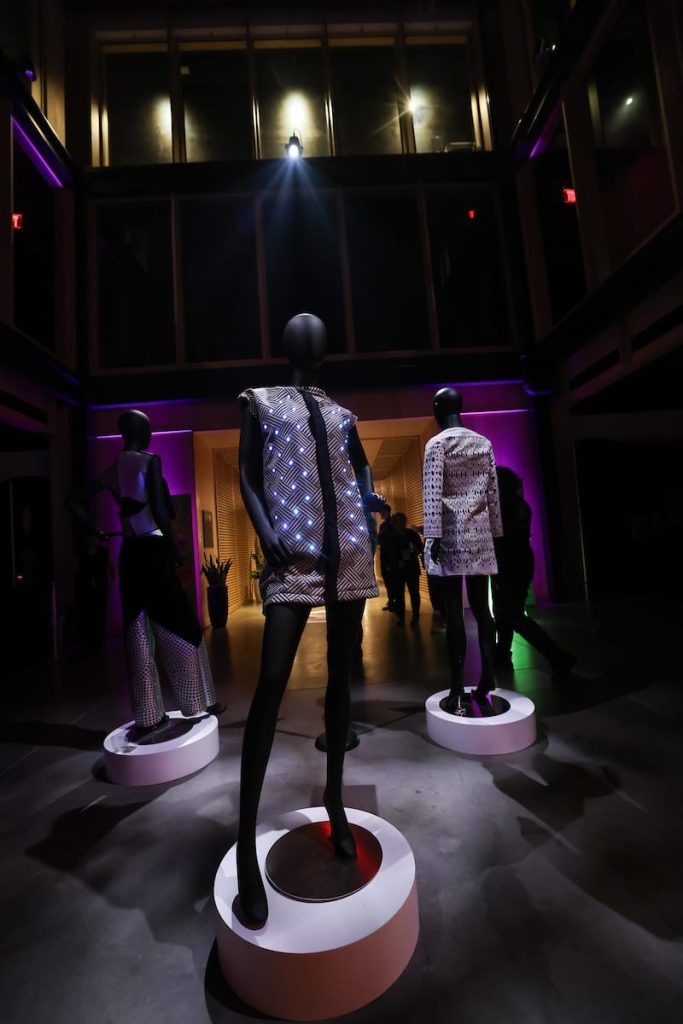Fashion
Ganit Goldstein’s unique interactive wearables at Boston Fashion Week – 3D Printing Industry

Massachusetts Institute of Technology‘s (MIT) based fashion designer Ganit Goldstein showcased a collection of garments integrated with advanced sensor technology during Boston Fashion Week 2024.
Hosted at The Foundry in Kendall Square, Cambridge the event was part of the Cambridge Science Festival in collaboration with the MIT Museum. Visitors experienced the garments’ interactive capabilities firsthand, exploring their novel sensor-embedded designs and a Virtual Reality (VR) application that emphasized advanced engineering in wearable technology.
Goldstein’s “Electric Skin” collection featured four garments equipped with sensors and conductive materials capable of responding to environmental stimuli, such as touch and proximity. These garments demonstrated adaptive features like color and texture changes, highlighting the potential for interactive textiles.
Alongside the garments, a VR application used motion tracking to transform recorded body movements into an interactive dance performance, expanding the scope of wearable systems beyond fashion.

Combining tradition with technology
Building on her history of integrating traditional craftsmanship with 3D printing, Goldstein’s earlier projects have demonstrated her continuous innovation in wearable technology.
In 2018, Goldstein combined 3D printing with traditional weaving techniques to create a pair of shoes using Stratasys’ Connex3 multi-material 3D printer and GrabCAD software. Inspired by the Japanese ikat weaving technique, known as ‘Kasuri,’ Goldstein integrated vibrant colors and intricate patterns into her design at the voxel level.
These shoes were first showcased at the Arts of Fashion Foundation Fashion Show in San Francisco in 2018 and were set to appear at the Internationale Handwerksmesse in Munich in March 2019.
Alongside fashion designer Julie Koerner, Goldstein collaborated with Stratasys showcasing the company’s direct-to-textile PolyJet Technology as part of the EU-funded Re-FREAM project. Goldstein’s work combined traditional craft methods with 3D printing to produce a Japanese-style kimono inspired by Asian embroidery and the ‘ikat’ coloring technique.
Using a 3D body scan and an algorithm, the design was directly mapped onto the garment’s surface during printing, enabling intricate patterns not achievable through conventional techniques.
Expanding 3D printing in fashion
As fashion 3D printing is on the rise, many designers have been able to create sustainable designs and unique accessories.
A recent example includes that of students from Arts University Plymouth and Plymouth Marine Laboratory (PML) working together to design a 3D printed dress inspired by Coccolithophores, microscopic plankton vital to the carbon cycle. Named “The Plankton Lady,” the dress highlights the impact of ocean warming and acidification on marine ecosystems.
Made from plant-based polylactic acid (PLA) and assembled by hand, the dress was created in just ten days using the university’s Fab Lab. Showcased at prestigious venues, it is now part of The Box‘s Planet Ocean exhibition, sparking conversations about climate change and ocean health until April 2025.
Used on the entertainment front, Coperni introduced its iconic Swipe Bag at Disneyland Paris, produced using Rapid Liquid Printing (RLP), a process developed by MIT’s Self-Assembly Lab. Unlike conventional 3D printing methods, RLP allows objects to be created directly within a gel suspension, enabling soft, stretchable, and durable designs without the limitations of gravity.
Made from recyclable platinum-cured silicone, the bag reflects Coperni’s focus on sustainable design. Moreover, this project demonstrated how advanced manufacturing techniques can blend seamlessly with creative design, demonstrating the potential for sustainable, functional fashion design.
Catch up on all the news from Formnext 2024.
Voting is now open for the 2024 3D Printing Industry Awards.
Want to share insights on key industry trends and the future of 3D printing? Register now to be included in the 2025 3D Printing Industry Executive Survey.
What 3D printing trends do the industry leaders anticipate this year?
What does the Future of 3D printing hold for the next 10 years?
To stay up to date with the latest 3D printing news, don’t forget to subscribe to the 3D Printing Industry newsletter or follow us on Twitter, or like our page on Facebook.
While you’re here, why not subscribe to our Youtube channel? Featuring discussion, debriefs, video shorts, and webinar replays.
Featured image shows Goldstein’s interactive clothing collection on display at Boston Fashion Week 2024. Photo via Goldstein.






:quality(85):upscale()/2024/11/13/975/n/1922729/aaf6ed89673527499351e7.32351023_.jpg)


